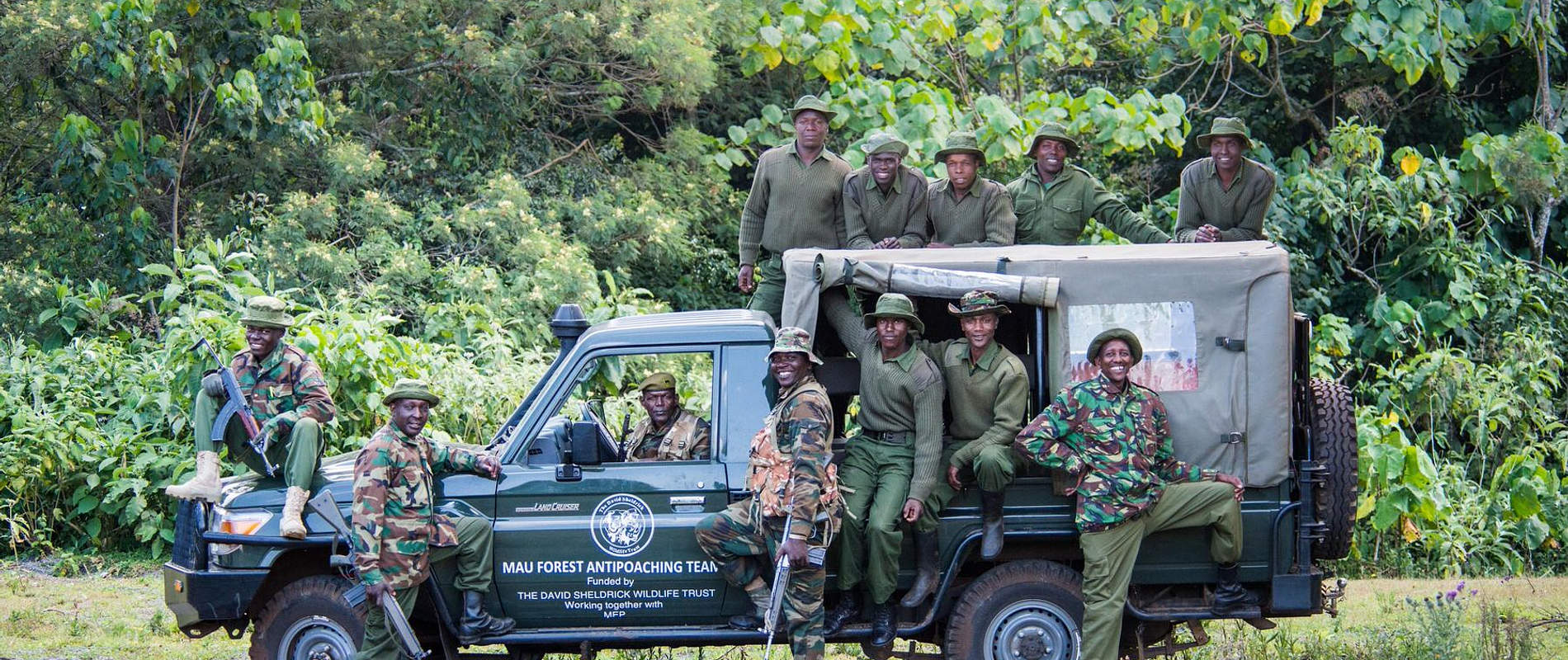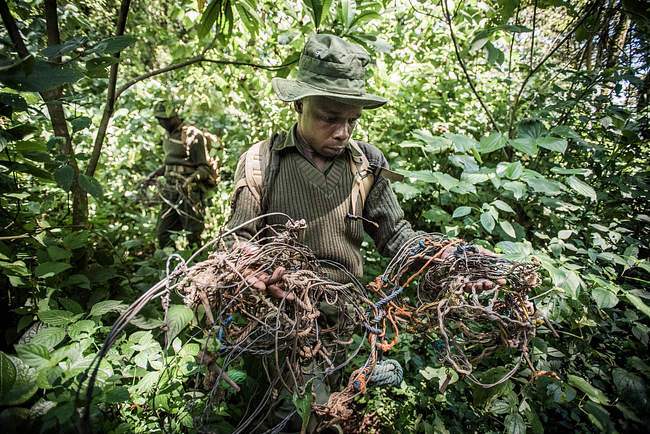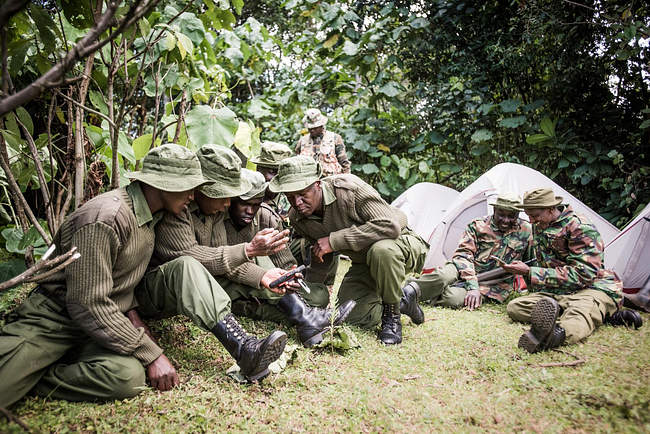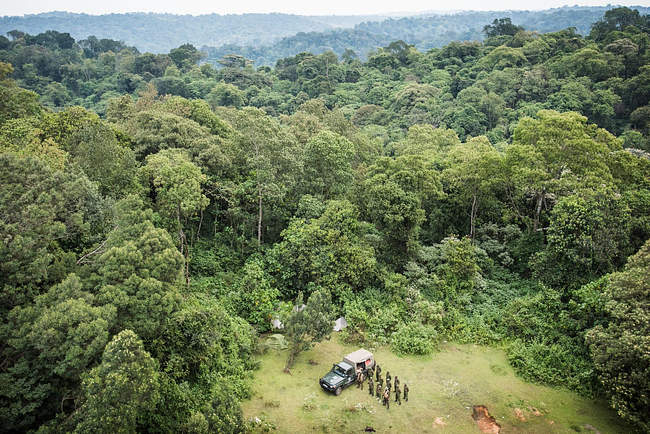Earlier this year the SWT partnered with the Mara Elephant Project (MEP) in the establishment of a new ranger force to patrol the Mau Forest, where poaching and other illegal activities, including logging, have been taking their toll on the flora and fauna in this critical area
The Mau Forest, which sits in the Rift Valley, is both the largest indigenous montane forest in East Africa and the largest drainage basin in Kenya, receiving some of the country’s highest rainfall rates. It is a priceless water catchment area for Kenya and the source of numerous rivers, including the Mara, Sondu and Njoro Rivers.

The Mau Team’s primary purpose is to monitor and safeguard the local elephant population in the Forest, which numbers approximately 650 elephants, protecting these individuals from poaching, while actively working to mitigate human-elephant conflict. With the additional support of KWS Rangers, assigned to the unit, the Mau De-Snaring Team has already made a big impact on the ground, with numerous successes, including most recently; playing an instrumental role in gathering intelligence that led to the arrest of three suspected ivory poachers and seizure of 37kg of ivory; the arrest of two bushmeat poachers; and the removal of countless snares.
All the while, the team’s sheer presence is having an impact, with those seeking to undertake illegal activities now consciously aware that the chance of them being caught and arrested has increased dramatically – deterrence is not immediately measurable, however it’s a key aspect in any boots-on-the-ground activity and something we have seen time and again when deploying new De-Snaring Teams.
In a collaboration that falls within both our Anti-Poaching and Saving Habitats Initiatives, the SWT has provided a Land Cruiser and all the field equipment and patrolling paraphernalia required by the team, as well as meeting all on-going running costs for its operation. This enables us to empower MEP to undertake the daily operational management of the team, including the recruitment of team rangers who are subsequently employed by the SWT.

MEP manage the Mau De-Snaring Team alongside their own teams that are already patrolling in the Mara ecosystem and all under the capable, and highly experienced, direction of MEP’s Marc Goss. These activities are taking place in MEPs backyard and with their knowledge of the area, well-established relations with local communities – from which the team members are recruited, and our shared collaborative approach with KWS and the Kenya Forest Service, this is a partnership that makes sense for wildlife in the region and ensures the best chance of success in protecting that wildlife and the Forest as a whole.










